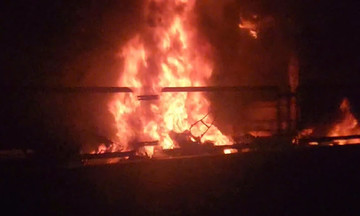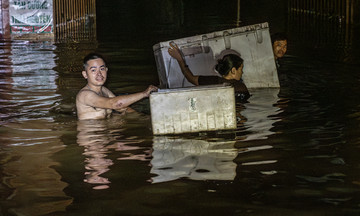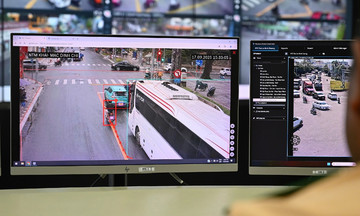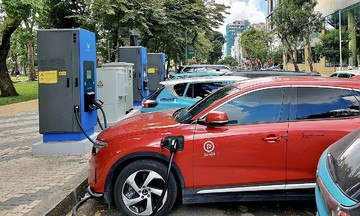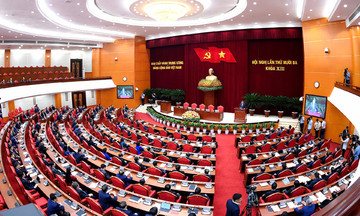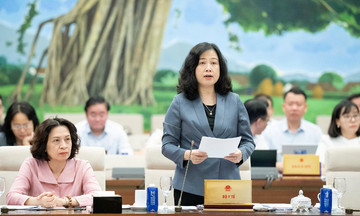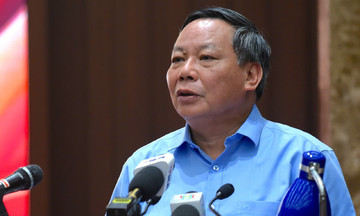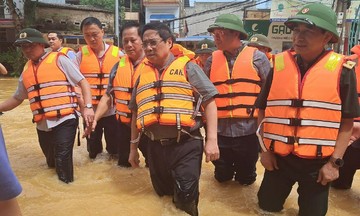Speaking at the opening session of the Central Committee of the Communist Party of Vietnam's Congress for the Vietnam Fatherland Front and its member organizations on 23/9, Party General Secretary To Lam emphasized the Front's role as the broadest coalition of the masses, workers, and all social strata.
For the 2025-2030 term, he called for the Front to restructure its organization and operations, aligning with the restructuring of socioeconomic development through the two-tiered local government model at the provincial and communal levels.
The general secretary stressed the guiding principle of prioritizing the people as the center, subject, target, and driving force of innovation. All resolutions and action programs, he stated, should focus on practical benefits for the people, particularly vulnerable groups and specific communities. He urged a shift from formality to tangible, data-driven results, prioritizing scalable, cost-effective models with significant social impact.
To achieve these objectives, he called for clear delegation of authority, elimination of bureaucratic practices within the Front, and strengthening national unity, ensuring "no one is left behind". This involves establishing multi-tiered, multi-channel representation for new generations of workers, farmers, online youth, women, vulnerable groups, religious communities, and ethnic minorities, while promoting interfaith unity.
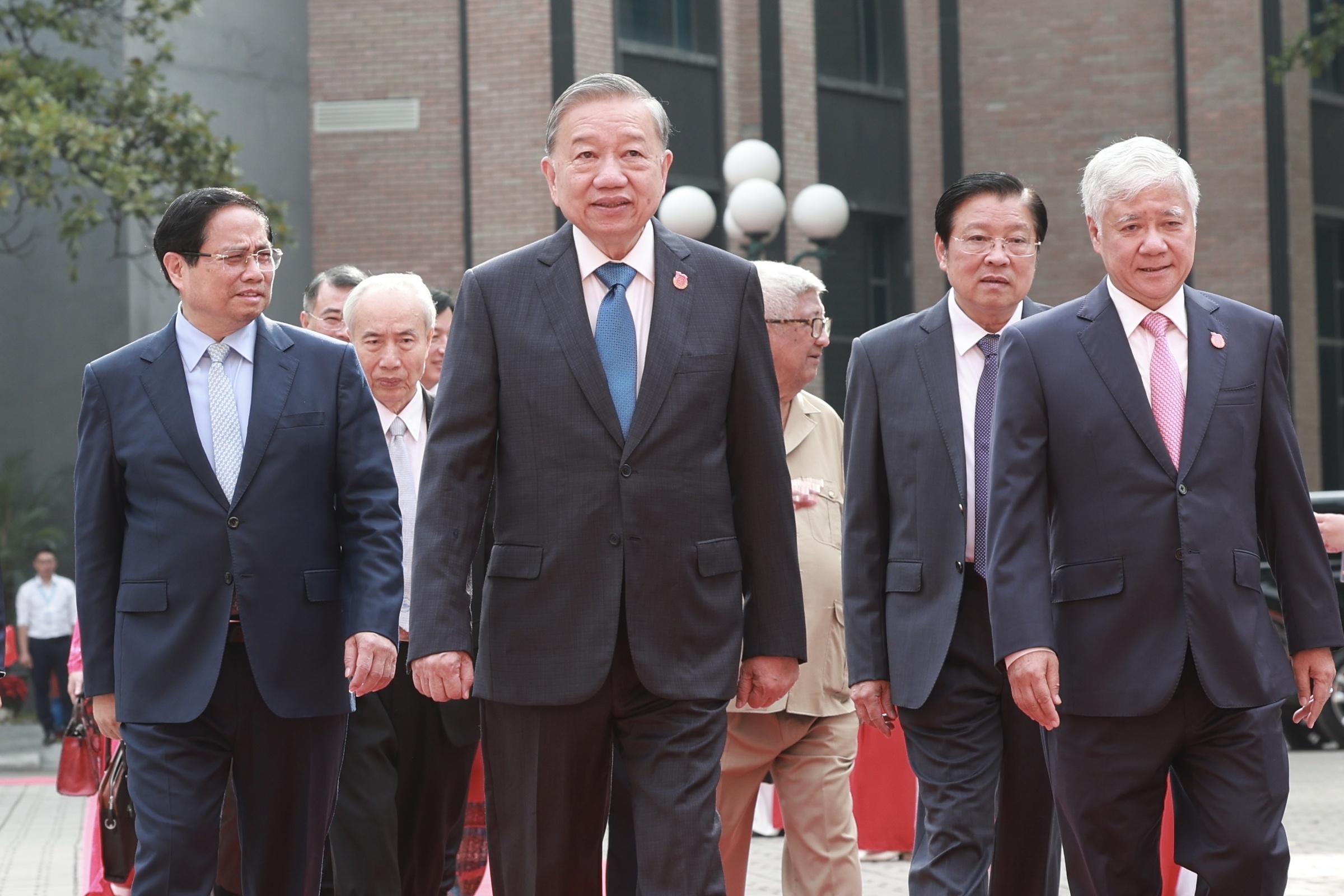 |
Party General Secretary To Lam, Prime Minister Pham Minh Chinh, and Chairman of the Vietnam Fatherland Front Central Committee Do Van Chien attend the Congress. Photo: VFF |
Party General Secretary To Lam, Prime Minister Pham Minh Chinh, and Chairman of the Vietnam Fatherland Front Central Committee Do Van Chien attend the Congress. Photo: VFF
The party leader outlined six key areas of public welfare, assigning primary responsibility to specific organizations: The Trade Union for jobs, wages, and occupational safety; the Farmers' Association for green rural livelihoods, digital agriculture, and value chains; the Women's Union for family welfare, gender equality, and violence prevention; the Youth Union for youth entrepreneurship, digital skills, and community volunteering; and the Veterans' and People's Public Security Associations for gratitude towards veterans, community order, and combating social ills.
The general secretary also suggested the Front establish a provincial-level Community Emergency Assistance Fund and pilot community risk insurance for vulnerable groups. He encouraged collaboration with religious organizations, businesses, and philanthropists in social welfare initiatives, emphasizing transparency and social audits. Political and social organizations, he said, should operate according to their stated goals, demonstrating their representative and popular nature, social and humanitarian character, and voluntary and democratic principles, serving the nation and its people.
Regarding the operations of member organizations, he urged the Youth Union and Women's Union to establish strong chapters in every industrial zone and school. Each school should undertake community service projects with concrete outcomes, focusing on learners and knowledge acquisition, and training young workers outside the state sector, particularly in the digital realm. The Trade Union should return to its core function of regular dialogue, substantive collective bargaining, and protecting workers' rights, establishing union facilities at workplaces and residences.
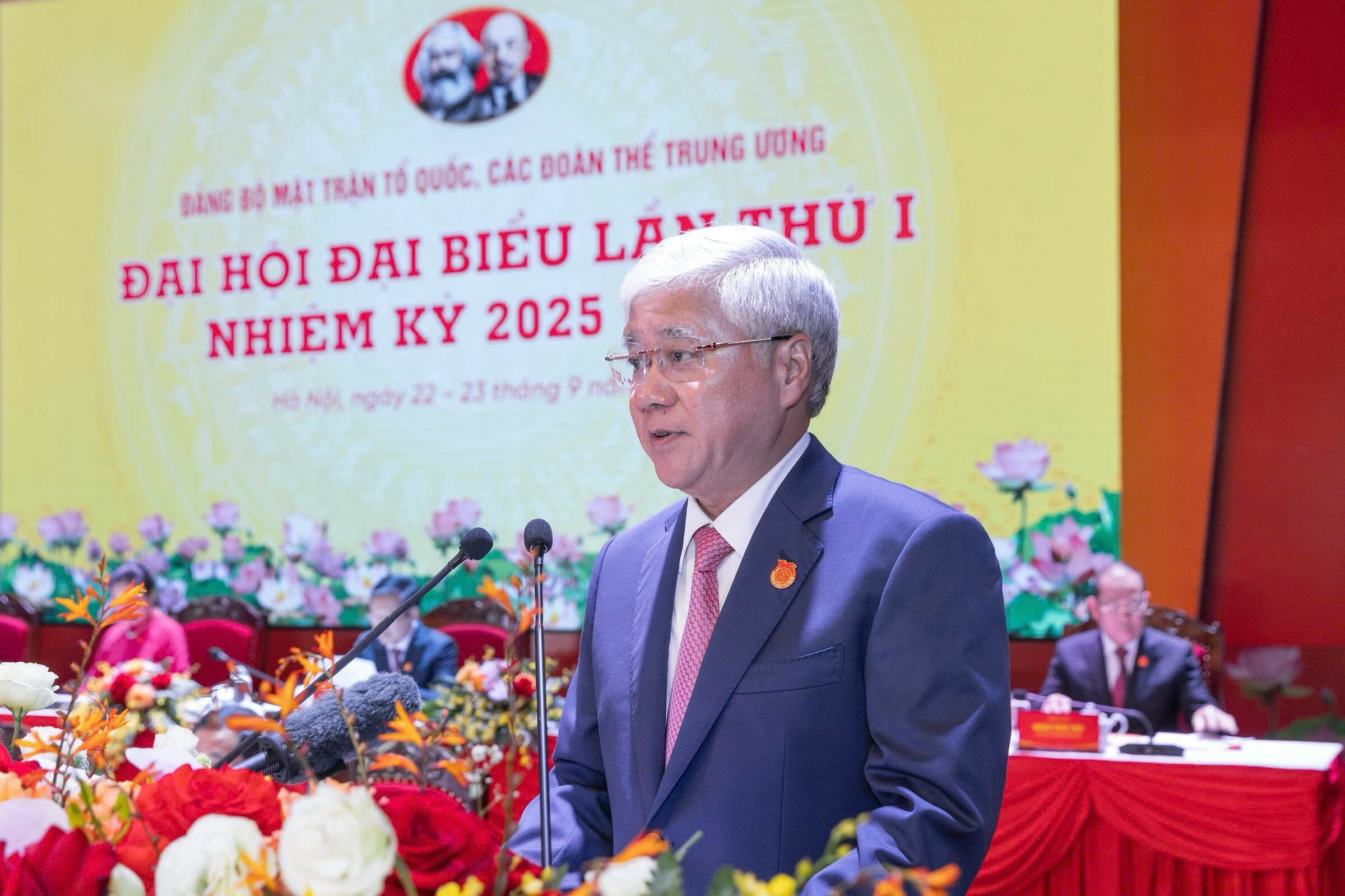 |
Chairman of the Vietnam Fatherland Front Central Committee Do Van Chien. Photo: VFF |
Chairman of the Vietnam Fatherland Front Central Committee Do Van Chien. Photo: VFF
The Farmers' Association should focus on cooperatives, clusters, processing, and markets. The Women's Union should lead in social welfare programs, family happiness, and mental health care. The Veterans' and People's Public Security Associations should be pillars of discipline, order, and the fight against social ills in the community. "Absolutely avoid formality, frequent meetings, and impressive reports with meager results," he emphasized.
All welfare programs should have deadlines, output standards, and impact indicators, with public evaluations conducted each quarter, incorporating feedback from beneficiaries, workers, businesses, government, the Front, and its member organizations.
The general secretary urged thorough discussion at the Congress, approving only achievable and impactful targets. Resolutions should be focused, measurable, and impactful. The resolutions of the Front's Party Committee and its member organizations should not simply replicate the 14th National Party Congress's resolutions, but should reflect the unique identity of the Front and the national unity bloc. "Don't let resolutions be just words on paper. Everyone should know what to do tomorrow, next week, next quarter," he noted.
He also called for an end to the "inverted cone" structure in the Youth Union and Women's Union, proposing expansion into industrial zones, boarding houses, and new rural areas. The Front should independently assess provincial social trust indices, publicize community welfare outcomes, and replicate successful social dialogue models.
Do Van Chien, Chairman of the Vietnam Fatherland Front Central Committee, stated the theme of the 2025-2030 Congress is "Building a clean and strong Party Committee; drastically innovating leadership thinking and methods; uniting and mobilizing all social strata to promote democracy and national unity, working together to enter an era of a prosperous, affluent, civilized, and happy country".
The Congress will comprehensively assess the implementation of the 2020-2025 Congress's resolutions; define directions, goals, and key tasks for 2025-2030; review the leadership of the 2020-2025 Party Committee; contribute to the draft documents of the Party's 14th National Congress; and implement the Politburo's decisions on personnel matters.
The Congress will set forth directions, goals, tasks, and key solutions for the comprehensive leadership of the Fatherland Front, political and social organizations, and mass organizations assigned tasks by the Party and State.
Delegates will address solutions to promote people's ownership, consolidate and strengthen national unity, and realize the aspiration of building a prosperous, affluent, civilized, and happy country in the new era.
Son Ha



